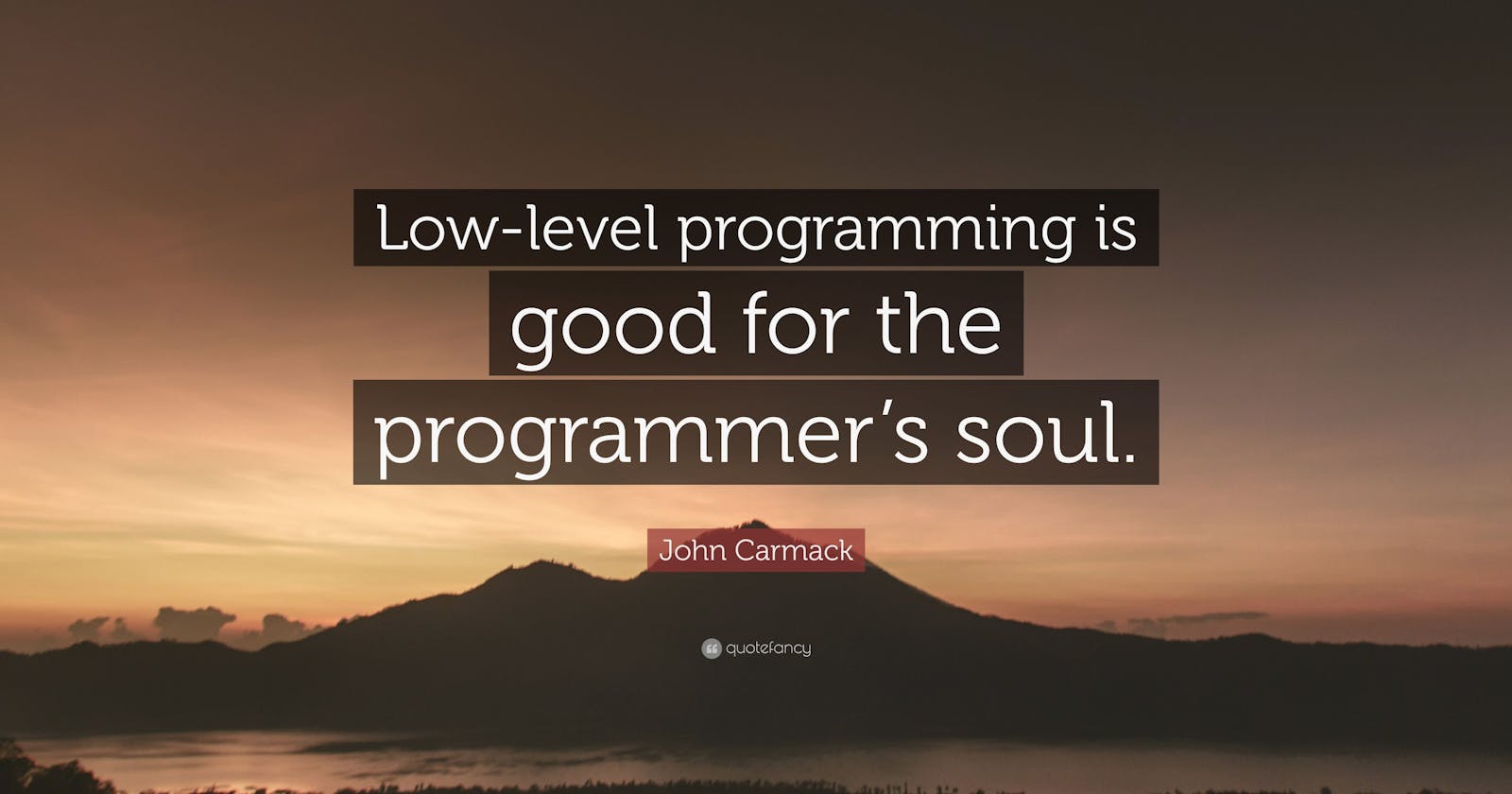Low-level development has been a niche area as most of the developers out there(including the ones in my circle) have chosen to abstract away from the lower levels and focus on higher-level languages such as Java & Python. I was(still am) very interested in knowing what happens under the hood. I learned a while back that there is a large demand for C developers both at large companies and startups even if the job ads aren't as many.
Jobs that require low-level programming include embedded systems development, High-Performance Software Engineer, Linux Internals Engineer and generally any project that requires code that interacts as closely with the hardware as possible.
What is low-level programming? This refers to programming for the hardware as closely as possible using languages such as C, Rust, assembly or C++. Knowing what's under the hood makes one a better developer, understanding memory management, processes, signals etc is essential to developing more complex software that other people can build on top of. Such languages require the programmer to take care of everything, this approach has its pros & cons. One major disadvantage is that mistakes can be very catastrophic while a major pro is that very efficient software can be created. Higher level can be considered to have a lot of abstraction e.g Java's JVM
The low-level programmer is involved in writing software that requires blazingly fast performance for uses such as databases, network routers, high-frequency trading & high volume applications.
Genuinely talented low-level devs from my research, probably in the top 5% are extremely rare but they are very well compensated, and to achieve this I was encouraged to understand my language down to each library and all I can say is that this has helped me grow as a developer. Growth is progressive, I do not yet consider myself an expert but I try as much as I can to learn as much as I can.
A few of the lessons that I have learned so far include the following:
Understanding computer architecture is very crucial to writing complex code.
It's the ability to self-teach that puts one way ahead of others.
Be ready to learn from your mistakes & more experienced developers.
Have a very strong grasp of the basics before diving into more advanced topics.
Having a good understanding of C provides a good foundation when diving into other stacks. It teaches you to be pedantic. The brain just like a muscle needs to be exercised.
Have good communication skills.
Code a lot, Google a lot, fail fast & early.
Always learn from your mistakes.
While there is a lot to talk about in this area I hope that anyone who will read this will find it interesting and worthwhile. From my experience being a C programmer has proven to be inherently satisfying and fulfilling.
I now finish off with a quote from Joel Spolsky
"I think that some of the biggest mistakes people make even at the highest architectural levels come from having a weak or broken understanding of a few simple things at the very lowest levels. You’ve built a marvelous palace but the foundation is a mess."
